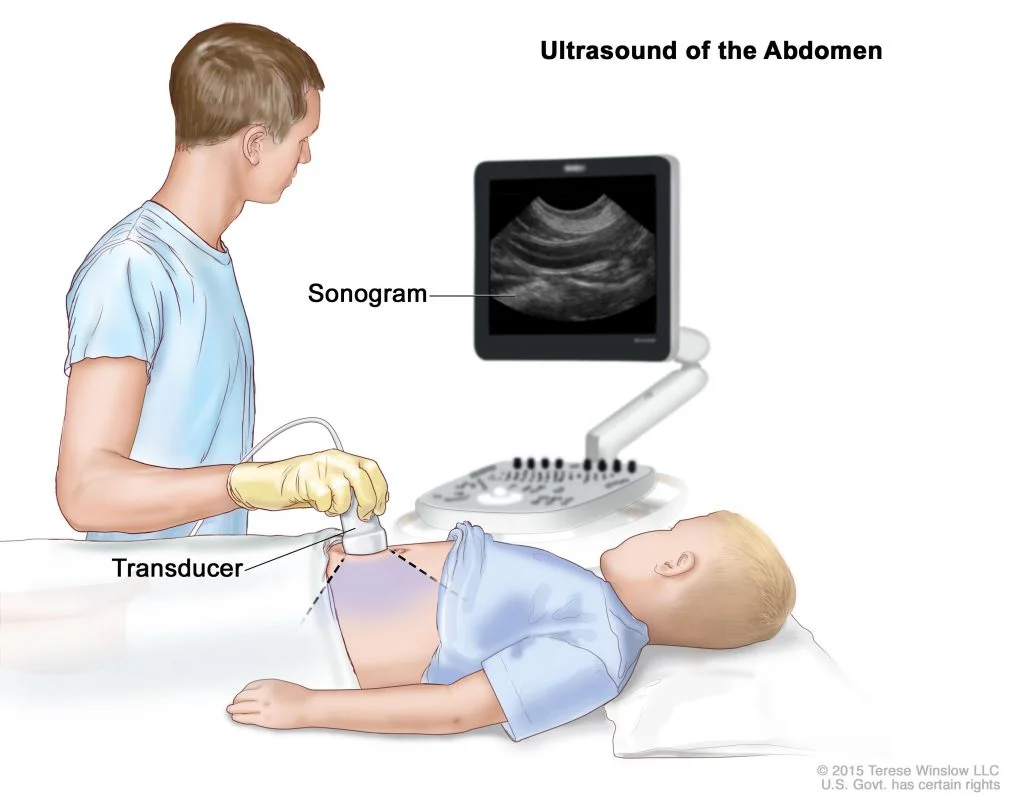
Abdominal ultrasound
An abdominal ultrasound is a non-invasive diagnostic procedure that uses high-frequency sound waves to create detailed images of the organs and structures within the abdomen. Doctors recommend this imaging technique to evaluate and diagnose various medical conditions affecting the liver, gallbladder, kidneys, pancreas, spleen, and blood vessels.
How Does an Abdominal Ultrasound Work?
During an abdominal ultrasound, a trained sonographer applies a special gel to the abdomen and uses a handheld device called a transducer. The transducer emits sound waves that bounce off the abdominal organs and tissues, creating real-time images on a monitor. These images help healthcare providers assess the size, shape, and condition of the organs, identify abnormalities, and guide further treatment.
Why Do Doctors Perform Abdominal Ultrasounds?
- Detect and monitor liver diseases, such as cirrhosis or fatty liver.
- Identify gallstones, kidney stones, or blockages in the bile ducts.
- Evaluate the health of the kidneys and detect cysts, tumors, or infections.
- Examine the pancreas for inflammation or tumors.
- Assess blood flow in the abdominal blood vessels and detect aneurysms or clots.
- Investigate unexplained abdominal pain, swelling, or other symptoms.
What Are the Benefits of an Abdominal Ultrasound?
- It is painless, safe, and does not involve radiation.
- It provides clear, real-time images of soft tissues that X-rays cannot capture.
- It helps doctors make accurate diagnoses and plan effective treatments.
How Should You Prepare for an Abdominal Ultrasound?
- Fast for 8–12 hours before the procedure to ensure clear images of the gallbladder and pancreas.
- Drink water and avoid urinating to keep the bladder full for better visualization of pelvic organs.
What Happens After the Procedure?
After the abdominal ultrasound, your doctor will review the images and discuss the findings with you. If the results reveal any abnormalities, they may recommend additional tests or treatments.Contact Us
Conclusion
An abdominal ultrasound is a powerful diagnostic tool that helps doctors evaluate and monitor abdominal health. By providing detailed images of internal organs, it plays a crucial role in diagnosing conditions and guiding treatment plans. If your doctor recommends an abdominal ultrasound, rest assured that it is a safe, effective, and painless procedure designed to support your overall health..Schedule your Consultation with Dr. Ritesh Nawkhare
